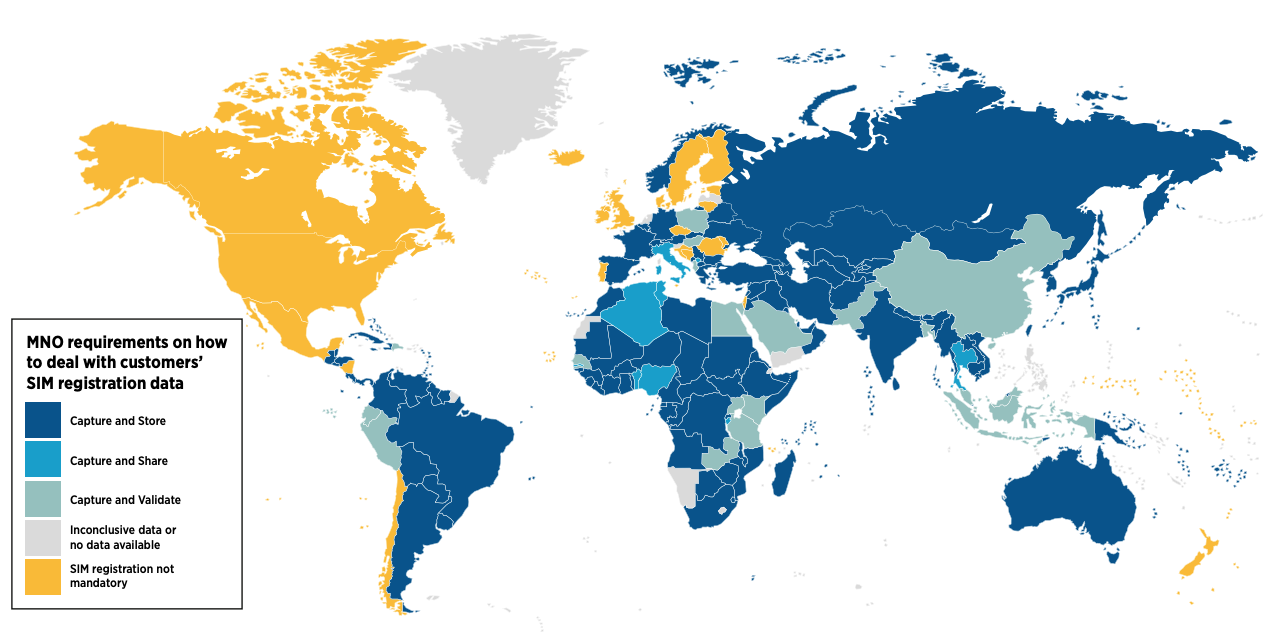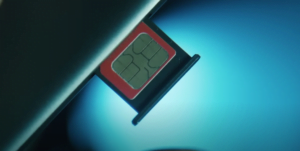In the age of smartphones and constant connectivity, it is important to understand the unique laws and regulations surrounding sim card registration in different countries. These laws vary from place to place, but they all share the common goal of improving security and reducing illicit activities. From stricter regulations in countries like Nigeria and Pakistan to more relaxed policies in the United States and United Kingdom, navigating the ins and outs of sim card registration is essential for travelers and residents alike. In this article, we will explore some of the countries that have implemented sim card registration laws and the reasons behind their implementation.
Understanding SIM Card Registration Laws
SIM card registration laws refer to the regulations and requirements imposed by governments to ensure that every subscriber’s SIM card is registered with their personal information. This allows authorities to keep track of individuals using mobile networks and ensures a level of accountability for their usage. These laws vary from country to country, with some taking a more strict approach while others adopt a more flexible stance.
Global SIM Card Registration Trends
SIM card registration laws have gained momentum worldwide, reflecting the growing emphasis on transparency and security in the telecommunications industry. Many countries have implemented these laws as a means to combat terrorism, prevent illegal activities, and enhance national security. The move towards stricter regulations is a response to the increasing reliance on mobile communication and the need to monitor its usage effectively.

This image is property of blog.telegeography.com.
Rationale for Implementing SIM Card Regulations
The implementation of SIM card registration laws is driven by various factors. One of the key reasons is the need to enhance national security and combat organized crime. By linking each SIM card to its respective owner, authorities can trace and monitor communications, reducing the risk of terrorist activities, and facilitating law enforcement efforts. Moreover, SIM card registration laws help in regulating the telecommunication industry, ensuring fair competition, and reducing illegal practices.
Impact of SIM Card Registration
Influence on Users’ Privacy
SIM card registration laws have sparked debates regarding user privacy. Critics argue that these regulations undermine individuals’ privacy rights by requiring personal information to be provided to authorities. While proponents argue that this measure is necessary for security purposes, there is a need for a balance between maintaining privacy and enhancing security. Governments should take steps to ensure that the collected data is only used for specified purposes and protected from unauthorized access.
Effects on National Security
The implementation of SIM card registration laws has proven effective in bolstering national security. By having a comprehensive database linking mobile numbers to individuals, law enforcement agencies can track and investigate suspicious activities more efficiently. This ensures a rapid response to potential threats, preventing acts of terrorism and other crimes. In this way, SIM card registration laws contribute to the overall stability and security of a nation.
Impact on Telecommunication Industry
SIM card registration laws also have a significant impact on the telecommunication industry. Companies are required to comply with these regulations and facilitate the registration process for their customers. The registration requirements may incur additional costs for telecom providers, but it also promotes responsible usage and customer accountability. Furthermore, these laws encourage fair competition by preventing the misuse of anonymous mobile numbers for illegal activities.
Repercussions on Crime Rates
SIM card registration laws play a vital role in reducing crime rates. Criminals often utilize unregistered or stolen SIM cards to carry out their unlawful activities anonymously. By imposing registration requirements, governments can effectively track and trace criminals, deterring them from using mobile networks as a tool for illegal activities. This mechanism acts as a deterrent and helps in curbing criminal actions, thereby making communities safer.

This image is property of www.rappler.com.
Countries with Strict SIM Card Registration Laws
China: Real-name Identification System
China has implemented a real-name identification system for SIM card registration, where users are required to provide their identification documents for verification. This stringent approach ensures that every mobile user is registered under their real names, minimizing the risk of anonymity and enabling authorities to track communications more effectively.
India: Aadhaar-Based Biometric Verification
In India, SIM card registration is linked to the Aadhaar system, which is a biometric identification program. Users are required to provide their Aadhaar number and undergo biometric verification to activate their SIM cards. This measure aims to enhance security by ensuring that SIM cards are registered under verified identities, reducing the potential for misuse.
Russia: Mandatory SIM Registration Laws
Russia has implemented mandatory SIM card registration laws, requiring users to provide their personal information to the telecom operators. This data is then stored in a centralized database accessible to law enforcement agencies. These measures enable authorities to effectively investigate and prevent criminal activities by easily identifying the owners behind mobile numbers.
Saudi Arabia: Registration with National ID
In Saudi Arabia, SIM card registration is linked to the national ID system. Individuals are required to present their national identity cards when purchasing or activating a SIM card. This enables the authorities to keep track of users and monitor communication effectively, ensuring national security and preventing illegal activities.
Countries without Strict SIM Card Registration Laws
While many countries have adopted strict SIM card registration laws, some nations have a more lenient approach. Let’s explore a few examples:
America: Prepaid SIM Cards
In the United States, prepaid SIM cards are widely available without strict registration requirements. Individuals can purchase these SIM cards without providing personal identification or undergoing verification. While this allows for convenience and flexibility, it also presents challenges in preventing the misuse of anonymous mobile numbers.
Canada: Loopholes in SIM Card Registration
Canada has relatively loose regulations when it comes to SIM card registration. While there are identification requirements in place, they are not as stringent as in some other countries. This creates potential loopholes that can be exploited, making it important for authorities to continually evaluate and update their registration policies.
United Kingdom: Less Strict Requirements
The United Kingdom has implemented SIM card registration regulations, but the requirements are less strict compared to some other jurisdictions. Users are generally required to provide some form of identification, but the process is relatively straightforward, allowing for a balance between security and convenience.

This image is property of i.stack.imgur.com.
The Process of SIM Card Registration
Step-by-Step Guide to SIM Card Registration
The process of SIM card registration typically involves the following steps:
- Purchase a SIM Card: Users can obtain a SIM card from an authorized provider or retailer.
- Provide Identification: Users are required to provide valid identification documents, such as a passport or national ID.
- Complete Registration Form: Users fill out a registration form, providing personal details such as name, address, and contact information.
- Submit Form and Documentation: The completed registration form, along with the identification documents, is submitted to the telecom service provider for verification.
- Verification Process: The telecom service provider verifies the submitted information and documents, ensuring their authenticity.
- Activation: Once the registration is approved, the SIM card is activated and ready for use.
Documentation Required for Registration
The specific documentation required for SIM card registration may vary between countries and providers. Generally, individuals need to provide valid identification documents such as a passport, national ID card, or driver’s license. Some countries may also require additional proof of address, such as utility bills or bank statements, to establish residency.
Verification Process in SIM Card Registration
The verification process is crucial in ensuring the accuracy and authenticity of the provided information. Telecom service providers employ various methods to verify the submitted data, including cross-referencing with official databases, conducting background checks, and comparing biometric information if applicable. The verification process helps in combating identity fraud and ensures the legitimacy of the registered SIM card owners.
Technologies Involved in SIM Card Registration
Use of Biometrics
Biometrics, such as fingerprint or facial recognition, play a significant role in SIM card registration in some countries. By capturing and storing biometric data, authorities can enhance the accuracy of identification and reduce the risk of impersonation or fraud. Biometric authentication adds an additional layer of security to ensure that the registered SIM cards are linked to the rightful owners.
Online Verification Systems
With technological advancements, online verification systems have become increasingly common in SIM card registration processes. These systems allow individuals to submit their information and documents electronically, reducing the need for physical visits to service providers. Online verification systems streamline the registration process, making it more convenient and efficient for users.
Integration with National ID Databases
Many countries integrate their SIM card registration systems with existing national ID databases. This integration enables authorities to validate submitted information against official records, ensuring the accuracy and authenticity of the registration data. By leveraging these national databases, SIM card registration becomes more reliable, efficient, and secure.

This image is property of www.phonetravelwiz.com.
Critiques of SIM Card Registration
Privacy Concerns
One of the major critiques of SIM card registration laws revolves around privacy concerns. Critics argue that mandatory registration compromises individuals’ privacy rights by requiring them to provide personal information that can be accessed by authorities. It is essential for governments to enact strict regulations governing the collection, storage, and usage of this data to mitigate privacy risks and prevent misuse.
Effectiveness in Preventing Crime
While SIM card registration laws are implemented with the intention of preventing crime, their effectiveness remains a subject of debate. Critics argue that determined individuals can still find ways to circumvent the system or misuse registered SIM cards. It is important for governments to continually assess and improve upon registration processes to ensure their effectiveness in deterring criminal activities.
Potential for Misuse and Fraud
The registration process itself introduces a potential risk for misuse and fraud. In some cases, criminals may attempt to use falsified or stolen identification documents to register SIM cards under fraudulent identities. This highlights the need for stringent verification procedures and close collaboration between telecom providers and law enforcement agencies to detect and prevent such fraudulent activities.
SIM Card Registration in Case of Minors and Refugees
Regulations Surrounding Minor SIM Card Ownership
Regulations regarding SIM card ownership for minors vary between countries. Some jurisdictions require parental consent and supervision, while others limit the type of services available to minors. The aim is to protect minors from potential harm, ensure responsible usage, and provide a supportive framework for their access to mobile communication.
Process for Refugees or Non-Residents
SIM card registration for refugees or non-residents can pose challenges due to the absence of local identification documents. In such cases, governments and service providers may adopt alternative registration processes, such as linking SIM cards to refugee identification cards or other recognized forms of identification. It is crucial to ensure that vulnerable populations have access to mobile communication while also ensuring security and regulatory compliance.
Implications and Challenges
SIM card registration for minors and refugees presents various implications and challenges. Governments must strike a balance between safeguarding minors and offering them the benefits of mobile communication. Additionally, the registration process for refugees and non-residents requires careful consideration to ensure inclusivity, while also addressing security concerns and preventing abuse or exploitation.

This image is property of cdn.comparitech.com.
Enforcement and Compliance with SIM Registration Laws
Role of Telecom Companies
Telecom companies play a crucial role in the enforcement and compliance of SIM card registration laws. They are responsible for implementing registration processes, verifying the provided information, and reporting any suspicious or fraudulent activities. Telecom providers should establish robust internal procedures and collaborate closely with law enforcement agencies to ensure compliance with the regulations.
Penalties for Non-Compliance
To enforce compliance with SIM card registration laws, governments impose penalties for non-compliance. These penalties can range from fines and sanctions to temporary or permanent suspension of telecom services. By implementing strict consequences, governments incentivize both service providers and subscribers to adhere to the registration requirements, ensuring the effectiveness of the laws.
Public Awareness about SIM Card Registration
Public awareness plays a crucial role in promoting compliance with SIM card registration laws. Governments should conduct comprehensive information campaigns to educate the public about the importance of registration, its benefits in ensuring security, and the potential consequences of non-compliance. By raising awareness, governments can encourage a sense of responsibility among citizens and improve overall compliance rates.
In conclusion, SIM card registration laws have become increasingly prevalent worldwide, reflecting the need for enhanced security and accountability in the telecommunications industry. While these laws impact user privacy and present challenges, they play a vital role in combating crime, enhancing national security, and regulating the industry. As technology advances and legislative changes occur, SIM card registration will continue to evolve, aiming for a better balance between security and privacy while ensuring compliance and effectiveness.






